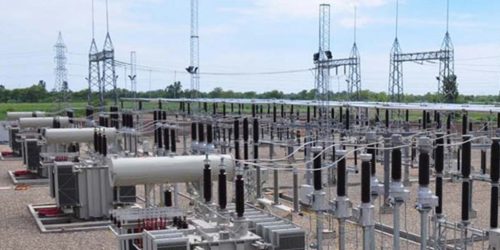ISLAMABAD: The government’s deals with 47 Independent Power Producers (IPPs), which are yet to be translated into binding agreements, will have a financial impact of Rs 836 billion based on 5 per cent rupee depreciation per annum in 28 years, well-informed sources in Power Division told Business Recorder. In return the government has to clear overdue receivables of IPPs of about Rs 400 billion in one go, for which no financial instrument is available at the moment. In August 2019, the government constituted a committee to look into the issues faced by the power sector, and to recommend a way forward. The committee presented its report in March 2020, highlighting the issues faced in the power sector. In pursuance of recommendations and decision of the Cabinet Committee on Energy (CCoE) of May 20, 2020, another committee was constituted under the chairmanship of Babar Yagoob Fateh Muhammad, Chairman Federal Land Commission to negotiate with IPPs.
The committee had prepared an action plan for holding negotiations with IPPs
established before 1994 and under the Power Polices of 1994, 2001 and Renewable Power Policy 2006 (including bagasse plants under the 2018 Co-Generation framework). IPPs under the 2015 policy were not included in the mandate of the committee.
According to sources, the committee after holding a series of meetings, formulated a report, with its salient features and the proposed action plan, presented to the Prime Minister and other forums.
The committee after successive rounds of discussions with IPPs and other stakeholders like Power Division, CPPA-G. NTDC and PPIB signed a Memoranda of Understanding (MoUs).
The sources maintained that the main features of the settlement reflected in the MoUs along with financial impact are as follows:
Hub Power Company (Hubco) which has the remaining life of seven years agreed on removal of USD & US CPI indexation on returns. It’s fixed O&M will be reduced by 11 percent with a financial impact of Rs 62 billion.
Under the 1994 Generation Policy there were seven IPPs, including Kapco, with the remaining life of 6-10 years, while Kapco’s life is one year. According to the MoUs, 11% straight reduction in capacity payments & variable O&M and dollar delinking for 50% of remaining CPP was agreed with a financial impact of Rs 92 billion.
Under the Policy 2002 the number of IPPs is 12 with remaining life of 14-21 years. The pacts reveal 12% USD-based return for foreign investors, 17% return @ Rs 148/USD with no further indexation for local investors with a clawback mechanism for fuel and O&M savings and recovery of past excess payments. Its financial impact will be Rs 322 billion excluding the impact of clawback.
Under the RE 2006 (Wind and Solar) policy, the number of IPPs is 19 with remaining life 12-19 years. The pact indicates a reduction to 13% USD based return and insurance cost up to 0.70 of EPC cost. O&M cost to be reduced by 15% to 25% through GoP/Nepra support, a 50% reduction in tariff above agreed benchmark with a financial impact of revision of agreement of Rs 206 billion, excluding O&M impact.
With respect to RE 2006 addendum 2013, bagasse co-generation-number of IPPs-8 with remaining 4-28 years, the MoU envisages a reduction to 12 percent USD-based return for next 5 years and shift to rupee-based 17% return @ Rs 168 USD; 70 per cent clawback mechanism for agreed benchmark Insurance cost has been reduced to 0.7 of the EPC cost. O&M cost has been reduced by 10%. Past excess payments shall be returned. The financial impact of revised agreements has been calculated at Rs 150 billion.
The total impact of all MoUs has been calculated at Rs 866 billion, staggered from 1 to 28 years.
It was revealed that based on MoUs assuming future rupee depreciation of 5%
per annum, the committee projected that the government will be able to save an amount of approximately Rs 836 billion for pre-1994, 2002 and 2006 policy IPPs over the remaining life of these plants.
The following new seven-member committee has been constituted to take further actions on the recommendations and action plan: (i) Minister for Energy; (ii) Babar Yagoob Fateh Muhammad, Chairman, Federal Land Commission of Pakistan- Member; (iii) Special Assistant to the Prime Minister on Power-Member; (iv) Secretary Power Division-Member; (v) Secretary Finance-Member; (vi) Barrister Qasim Wadud- Member; and (vii) CEO, CPPA-G- Member Secretary.
According to sources, a proposal also came under discussion as to whether representation of Nepra may be included in the composition of the proposed committee since matters relating to tariffs will be involved in the process. The Law and Justice Division recommended that inclusion of Nepra in the committee is not advisable as it is an independent regulator.





